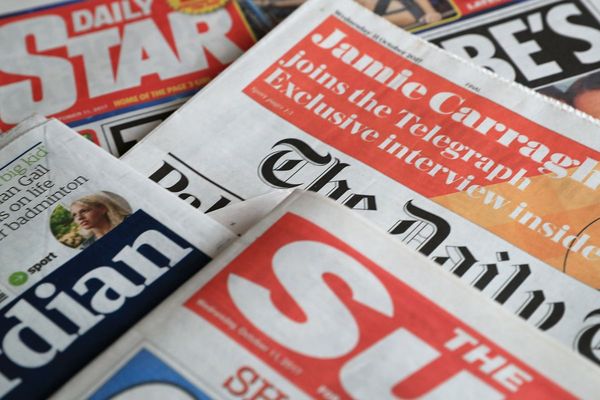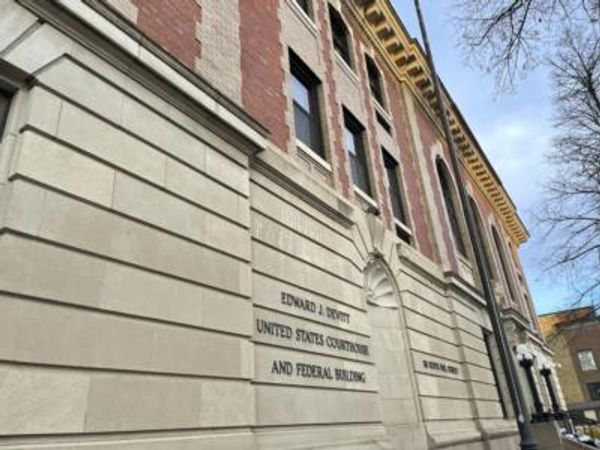
With the Queensland election done and dusted, the hunt is on within Australia’s political punditocracy for the all-encompassing narrative that explains what just happened — and what comes next.
The choice they make matters, because these national narratives are how our news media decide what makes news now: individual stories are no longer newsworthy in their own right — unless they fit the narrative.
It’s why the opinion makers in the Canberra press corps were so keen to leap into their pre-mixed views on national politics. Is it: Albo in crisis, as the ABC’s David Speers was keen to kick-start while the result was still up the air on Saturday night (and again, on Insiders the next day)? Or maybe it’s crisis-to-come with Labor’s loss of its lock on mainland states making governing harder, as The Australian was hoping on Sunday?
There’s been an enthusiastic embrace, too, of the narrative of the far-too-radical Greens. Although their vote held up, at about 10%, it was — like in the NSW council elections — less efficiently distributed into seats that they held or hoped to win.
Perhaps it was that dreaded cost of living crisis in the outer suburbs, home of the “real” working class that Melbourne-based pollster Kos Samaras cut and pasted to fit over the result? Or maybe, as Friday polling on the gender gap (and Labor’s campaign strategy) suggested, it was a male backlash outweighing a female revolt over, say, abortion?
Or maybe, it was that moral panic over youth crime that the Australian right has adopted almost unchanged from the US right, the one that seemed to work so well in the recent Northern Territory election? News Corp’s Cairns Post seemed to think so, with a week-long run into the election featuring front page all-caps banners ranging from “CRIMS RUN OUR CITY” to that old favourite “BRING BACK THE CANE.”
And there’s that world-weary saw that seems so smart but, in truth, explains nothing: it was just time for change. If only politics were that easy.
Our pundits are groping in the dark, reaching blindly into the grab-bag of those ready-made political tales pundits in democracies across the world tell each other to explain what’s going on because that’s all they have. The collapse of regional and local news has ground down our once-variegated political discourse into uniform national — even global — narratives that seek to explain similarities, not differences.
Once, in Queensland, pundits would have looked to the news framing across the state’s many local newspapers to determine the narrative that explains the intricacies and variations of the election across this most regional of states.
For example, they might have looked at the larger-than-expected swing in once-Labor strongholds of Mackay and Rockhampton in the context of local debates over the Labor government’s so-called progressive coal royalties — a debate now sheltered in the Mackay local news tab behind The Courier-Mail‘s paywall.
Or, perhaps, they might have looked at the impact of the significant post-Voice increase in Indigenous enrolment in the closer-than-expected results in the far north of the state.
Both — and other local stories like them — would have provided valuable insights beyond electoral politics that our legacy media prefer to ignore, like the climate emergency or struggles for de-colonialism.
Most of Queensland’s local papers have now gone. Although some new commercial and independent voices have emerged to fill the gap, the newcomers lack the clout in narrative setting that the integrated News Corp papers once delivered.
The weekend vote marked the end of the first full parliamentary term since News Corp’s early-Covid decision to shut most of the chain of daily newspapers from the Sunshine Coast to Townsville that it bought out of the collapsing APN media in 2016, along with the closure of the company’s community and suburban newspaper monopoly across Greater Brisbane.
Most of these historic mastheads linger as tabs within the subscriber-only Courier-Mail which, according to the Delaware-based News Corp’s most recent annual report to its US regulator, has an average print and digital subscription of just 145,620 in a state with a population of 5.56 million.
As the state’s main paper, The Courier-Mail was understandably distracted in the lead-up to Saturday’s vote, with Thursday’s very local BUCK STOPS WITH ME front page being not about either of the would-be premiers, but the newly-appointed coach of News Corp’s majority-owned local rugby league franchise, the Brisbane Broncos.
The relentless jemmying of Australia’s State and local elections into national narratives produces national results — this weekend’s Queensland results map almost identically with the vote in the 2022 federal election.
The result? Just about any national narrative will fit. It’s just that none of them will tell us anything.







